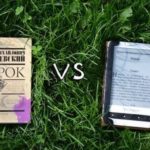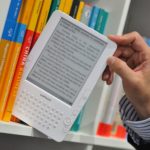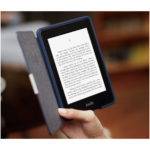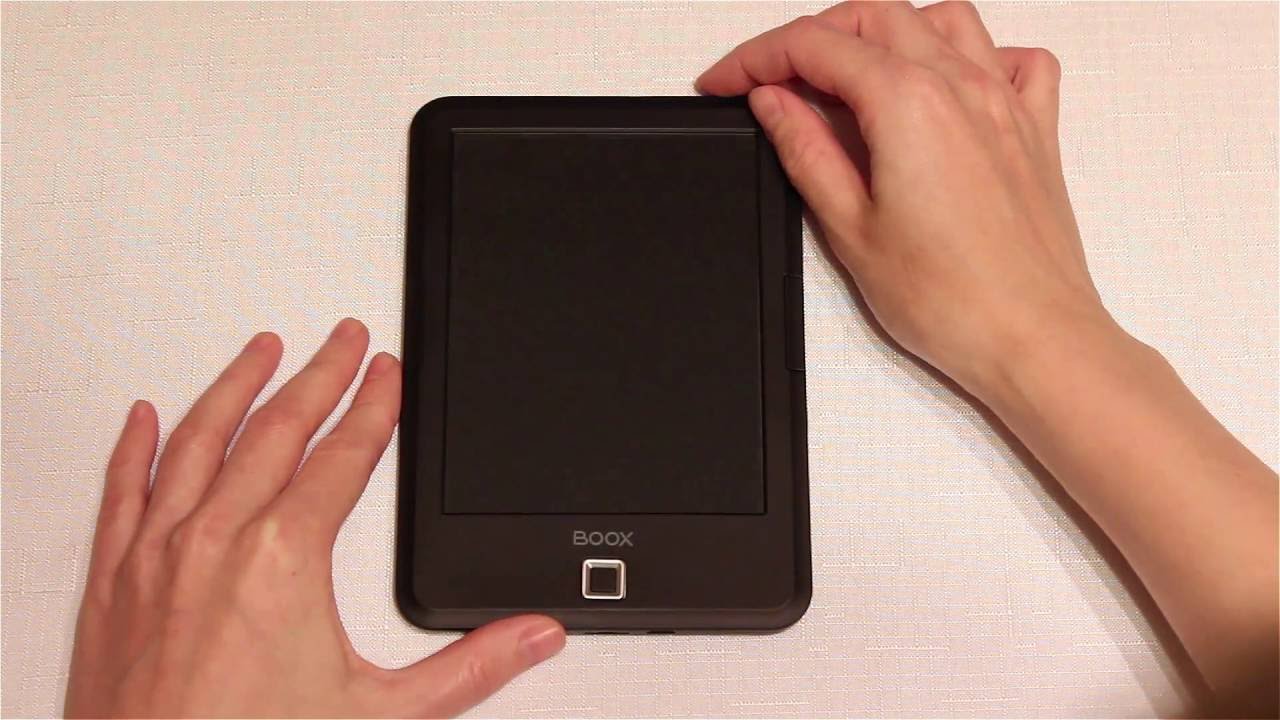First e-book
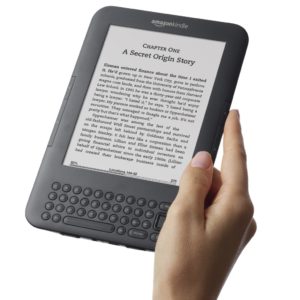 It is quite difficult to surprise a modern person with a device like a smart watch or an e-reader, although a couple of decades ago such technology was not widespread and recognizable. Who was the first inventor of the e-book and what evolutionary path did this device go through before appearing on the shelves of modern technology stores?
It is quite difficult to surprise a modern person with a device like a smart watch or an e-reader, although a couple of decades ago such technology was not widespread and recognizable. Who was the first inventor of the e-book and what evolutionary path did this device go through before appearing on the shelves of modern technology stores?
The content of the article
The history of the first e-book
It all started back in 1971, when a promising writer from Illinois (USA) named Michael Stern Hart “digitized” the US Declaration of Independence. Hart digitized this official document because in this form it was more convenient for him to work with it, and the ability to access the powerful Xerox Sigma V computer at that time allowed him to carry out his plans.
Subsequently, Michael transferred several more printed publications to digitized form, and then took part in a project called Gutenberg, the main goal of which was to develop an electronic library project for thousands of electronic books. Thanks to the enthusiasm and dedication of the participants, the project was a success, and by 2005 the library website had more than 17,000 copies of various materials.
Development of e-book technology
Although Michael Hart is considered the progenitor of the reader, devices capable of displaying text information on their displays were released by specialists from DEC in 1996. They were produced under the name DEC Lectrice, which can be translated from French as “reader”. The first e-reader resembled a tablet computer.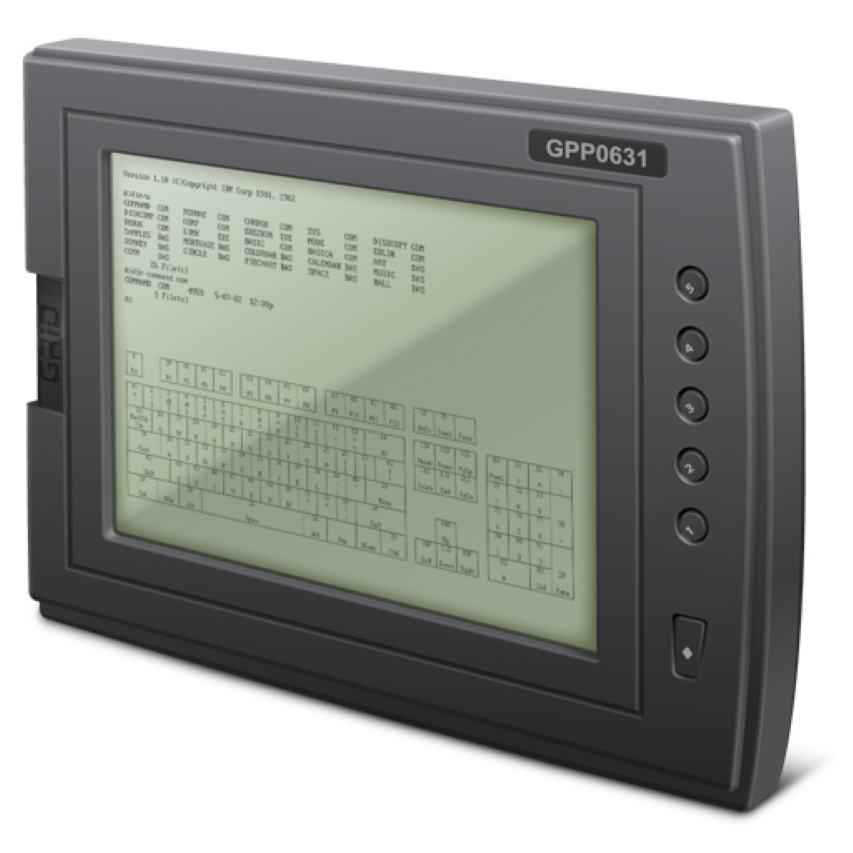
REFERENCE! Lectrice It had a metal body and a push-button control panel. In fact, the reader did not have any additional functions other than the main one.
The invention of “electronic paper,” which made the text displayed on the screen more visible and not too bright, occurred in 2007. The discovery and implementation of this method of displaying material greatly influenced the popularization of electronic books among ordinary people. New devices have become more accessible, and reading from them has become more enjoyable.
Modern e-books
Today, e-books allow you not only to read the displayed text, but also to perform other functions:
- download books directly from the Internet;
- view images and photos;
- play audio recordings and music;
- play video files;
- run applications that are not too power-demanding;
- expand the available memory capacity by installing additional media.
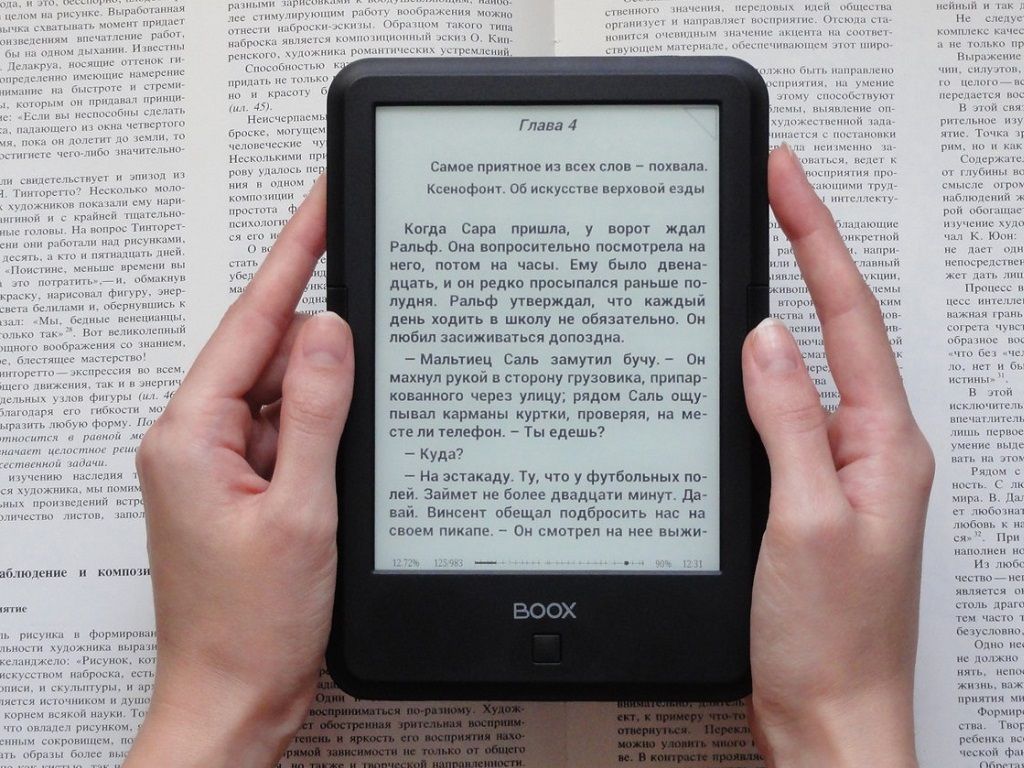
Today, there are two main technologies for producing displays for e-readers: LED and E-lnk Pear. The main differences between the two types of screens lie in the brightness and color display options. In the case of the second type, the image has a yellowish color, the same as some newspapers. In the case of an LED display, the main background is bright and white.
REFERENCE! For those who like not only reading, but also watching videos and images, devices with LED displays are better suited.
In order to better understand whether such devices are necessary, you should take a closer look at their main disadvantages and advantages. Among the undoubted advantages of e-books, most experts highlight:
- compactness and ease of handling;
- the ability to adjust brightness, contrast and many other parameters for comfortable reading;
- the ability to store a really large amount of text information on a small medium;
- possibility of expanding available memory.
In addition, all the “real accessories” for reading, such as bookmarks on pages, are also available on the electronic device. Readers with Braille font are available for people with disabilities.
It is worth noting, however, that such devices are not without some disadvantages, the most important of which are:
- quite high cost (especially for models from famous manufacturers);
- inability to view color images on some models;
- negatively affects users' sleep and makes them feel sluggish.
Be that as it may, hundreds and thousands of people around the world use e-readers every day to read a couple of pages of their favorite work after lunch or always have access to a pocket library with tens and hundreds of books.

